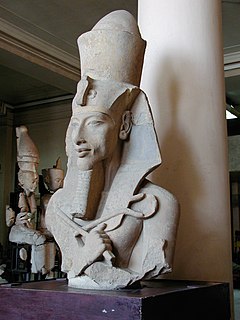A Quote by Marcus Aurelius
God sees the minds (ruling principles) of all men bared of the material vesture and rind and impurities. For with his intellectual part alone he touches the intelligence only which has flowed and been derived from himself into these bodies. And if thou also usest thyself to do this, thou wilt rid thyself of thy much trouble. For he who regards not the poor flesh which envelops him, surely will not trouble himself by looking after raiment and dwelling and fame and such like externals and show.
Related Quotes
What is thy thought? There is no miracle?
There is a great one, which thou hast not read,
And never shalt escape. Thyself, O man,
Thou art the miracle. Ay, thou thyself,
Being in the world and of the world, thyself,
Hast breathed in breath from Him that made the world.
Thou art thy Father's copy of Himself,--
Thou art thy Father's miracle.
When thou art offended at any man's fault, forthwith turn to thyself and reflect in what manner thou doest error thyself. For by attending to this thou wilt quickly forget thy anger, if this consideration is also added, that the man is compelled; for what else could he do? or, if thou art able, take away from him the compulsion.
God sees the inner spirit stripped of flesh, skin, and all debris. For his own mind only touches the spirit that he has allowed to flow from himself into our bodies. And if you can act the same way, you will rid yourself of all suffering. For surely if you are not preoccupied with the body that encloses you, you will not trouble yourself about clothes, houses, fame, and other showy trappings.
Every moment think steadily as a Roman and a man to do what thou hast in hand with perfect and simple dignity, and feeling of affection, and freedom, and justice; and to give thyself relief from all other thoughts. And thou wilt give thyself relief, if thou doest every act of thy life as if it were the last, laying aside all carelessness and passionate aversion from the commands of reason, and all hypocrisy, and self-love, and discontent with the portion which has been given to thee.
Beneficence is a duty. He who frequently practices it, and sees his benevolent intentions realized, at length comes really to love him to whom he has done good. When, therefore, it is said, "Thou shalt love thy neighbor as thyself," it is not meant, thou shalt love him first and do him good in consequence of that love, but, thou shalt do good to thy neighbor; and this thy beneficence will engender in thee that love to mankind which is the fulness and consummation of the inclination to do good.
O Lord, Thou knowest that which is best for us; let this or that be done, as Thou shalt please. Give what Thou wilt, how much Thou wilt, and when Thou wilt. Deal with me as thou thinkest best. Place me where Thou wilt, and deal with me in all things just as Thou wilt. Behold, I am Thy servant, prepared for all things: I desire not to live unto myself, but unto Thee; and oh, that I could do it worthily and perfectly!
Suppose that thou hast detached thyself from the natural unity... yet here there is this beautiful provision, that it is in thy power again to unite thyself. God has allowed this to no other part, after it has been separated and cut asunder, to come together again. ...he has distinguished man, for he has put it in his power not to be separated at all from the universal ...he has allowed him to be returned and to be united and to resume his place as a part.
O Romeo, Romeo, wherefore art thou Romeo? Deny thy father refuse thy name, thou art thyself thou not a montegue, what is montegue? tis nor hand nor foot nor any other part belonging to a man What is in a name? That which we call a rose by any other name would smell as sweet, So Romeo would were he not Romeo called retain such dear perfection to which he owes without that title, Romeo, Doth thy name! And for that name which is no part of thee, take all thyself.
Be not afraid of those trials which God may see fit to send upon thee. It is with the wind and the storm of tribulation that God, in the garner of the soul, separates the true wheat from the chaff. Always remember, therefore, that God comes to thee in thy sorrows as really as in thy joys. He lays low and He builds up. Thou wilt find thyself far from perfection if thou dost not find God in everything.




































